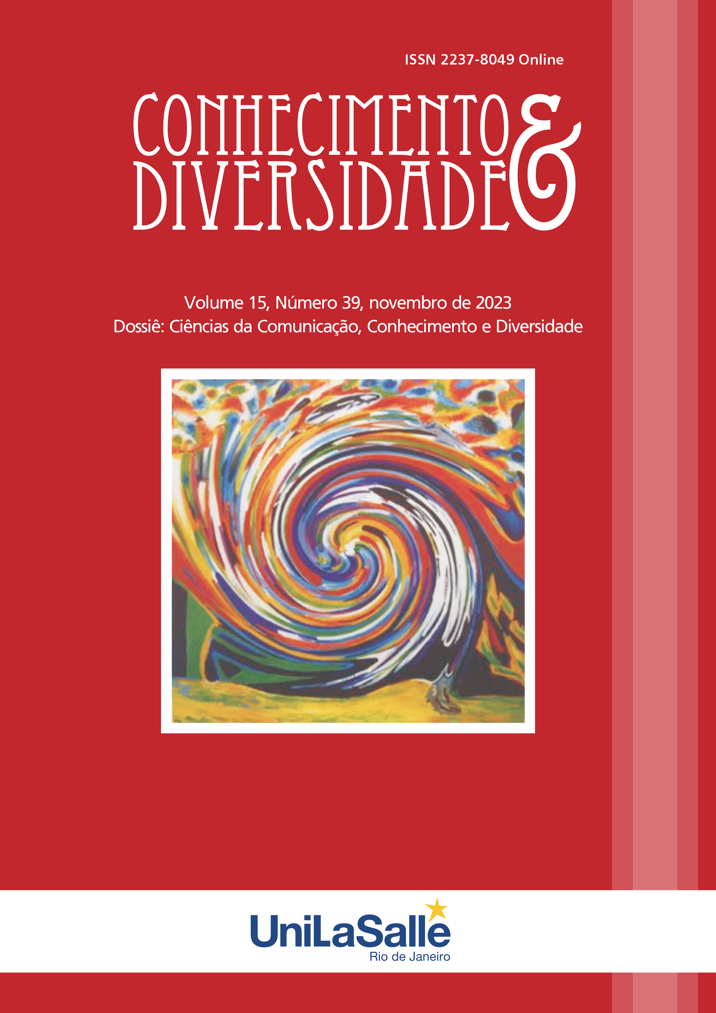BUILDING POWER AND TRUST
THE ROLE OF TRANSLATION IN SPREADING INFORMATION IN SOCIAL MEDIA IN THE AGE OF COVID-19 IN MOROCCO
DOI:
https://doi.org/10.18316/rcd.v15i39.11133Keywords:
Translation, Crisis communication, Crisis translation, Covid-19, Social mediaAbstract
This paper falls within a conjunction of translation studies, crisis communication, and social media communication. It sheds light on the critical role of translation in crisis management, with a focus on how the aforementioned elements of scrutiny converge and collaborate in the milieu of the outraging global pandemic. Likewise, the paper seeks to reveal the way translating information and information exchange enhances public trust. Therefore, it emphasizes how discourse can heavily contribute to building trust during a global health emergency and how translation can offer power to the source language/culture by relocating its emanating knowledge to the rest of the world. Likewise, the paper seeks to discuss the way translating information and information exchange enhances public trust. The present paper is a qualitative study that recovers data from selected translated discourses imparted by organizations as well as a questionnaire inquiring about the communicative content disseminated through social media networks during the COVID-19 pandemic. The article scrutinizes the data in terms of content, based on communication content analysis to shed light on how translation could be a powerful tool of relocating meaning production in establishing trust and the extent to which social media is effective as a crisis management mechanism. The further aim of this study is to demonstrate how internet communities and networking technologies can influence deep-rooted forms of communication adopted by governments and the way social media dynamics enhance or undermine the information-translation process at times of crisis. The preliminary data, contrary to what has been assumed, shows that non-expert reactions, attitudes, feelings, experiences, and trends are transmitted via social media and algorithmically analyzed, influencing the information cycle in real time. The networked-translation paradigm focuses less on a one-to-many communication style that uses language, context, and reasoning to persuade receivers and more on a many-to-many communication style that uses audiovisual means to mobilize crowds. (Van Dijck & Alinejad, 2020)
References
Abdelhay, A. M. (2020). Language planning and policy: Ideologies, Ethnicities, and Semiotic Spaces of Power. . Cambridge Scholars Publishing.
Cheng, Y. (2016). How Social Media Is Changing Crisis Communication Strategies: Evidence from the Updated Literature. . Journal of Contingencies and Crisis Management, 26(1), 58–68.
Gouadec, D. J. (2007). Translation as a Profession. Amsterdam and Philadelphia, PA : John Benjamins Publishing.
Hanafiah, K. M. (2021). Effective communication at different phases of COVID-19 prevention: roles, enablers and barriers. Viruses, 13(6).
Lee, Y. &. (2019). Crisis Information Seeking and Sharing for Measuring Public's Communicative Behavior in Social-Mediated Health Crisis. Journal of International Crisis and Risk Communication Research , 1(2), 13-38.
Lee, Y. J. (2019). Crisis Information Seeking and Sharing for Measuring Public's Communicative Behavior in Social-Mediated Public Health Crisis. Journal of International Crisis and Risk Communication Research, 2(1), 13-38.
MacKay, M. C. (2021). Examining Social Media Crisis Communication during Early COVID-19 from Public Health and News Media for Quality, Content, and Corresponding Public Sentiment. International Journal of Environmental Research and Public Health,, 18(15).
McCollough, C. J. (2021). Book Review: Social Media and Society: An Introduction to the Mass Media Landscape by Regina Luttrell and Adrienne A. Wallace. Journalism & Mass Communication Educator,, 76(3), 355-357.
O’Brien, S. &. (2019). Crisis translation: considering language needs in multilingual disaster settings. Disaster Prevention and Management, 29(2).
Quinn, P. (2018). Crisis communication in public health emergencies: the limits of ‘Legal control’ and the risks for harmful outcomes in a digital age. Life Sciences, Society and Policy, 14(1).
Ritchie, B. W. (2004). Chaos, crises and disasters: a strategic approach to crisis management in the tourism industry. . Tourism Management, 25(6), 669–683.
Rodin, P. G. (2018). Disentangling rhetorical subarenas of public health crisis communication: A study of the 2014–2015 Ebola outbreak in the news media and social media in Sweden. . Journal of Contingencies and Crisis Management.
Schlenker B.R., H. B. (1973). The effects of personality and situational variables on behavioral trust. Journal of Personality and Social Psychology, 25(3), 419-427.
Sheehan, M. &.-A. (2015). Crisis communication in a digital world. . In Cambridge University Press eBooks.
Shore, D. A. (2003). Communicating in times of uncertainty: The Need For Trust. Journal of Health Communication, 8, 13-14.
Son, J. L., & Lee, J. (2019). Content features of tweets for effective communication during disasters: A media synchronicity theory perspective. International Journal of Information Management, 45, 56–68.
Van Dijck, J. &. (2020). Social Media and Trust in Scientific Expertise: Debating the Covid-19 Pandemic in The Netherlands. Social Media and Society, 6(4).
Veil, S. R. (2011). A Work-In-Process Literature Review: Incorporating Social Media in risk and crisis communication. . Journal of Contingencies and Crisis Management, 19(2), 110–122.
Downloads
Published
Issue
Section
License
Copyright (c) 2023 Fatima-Ezzahra Yassine , Imane El Kortbi , Houssame Nekhass, Hamid Housni

This work is licensed under a Creative Commons Attribution 4.0 International License.
As recommended by the Public Knowledge Project, RCD adopts for its articles a CREATIVE COMMONS Attribution CC BY 4.0 license.
This license allows others to distribute, remix, adapt and build upon your work, even commercially, as long as they credit you for the original creation.
This is the most appropriate license offered.
Recommended for maximum dissemination and use of licensed materials.



